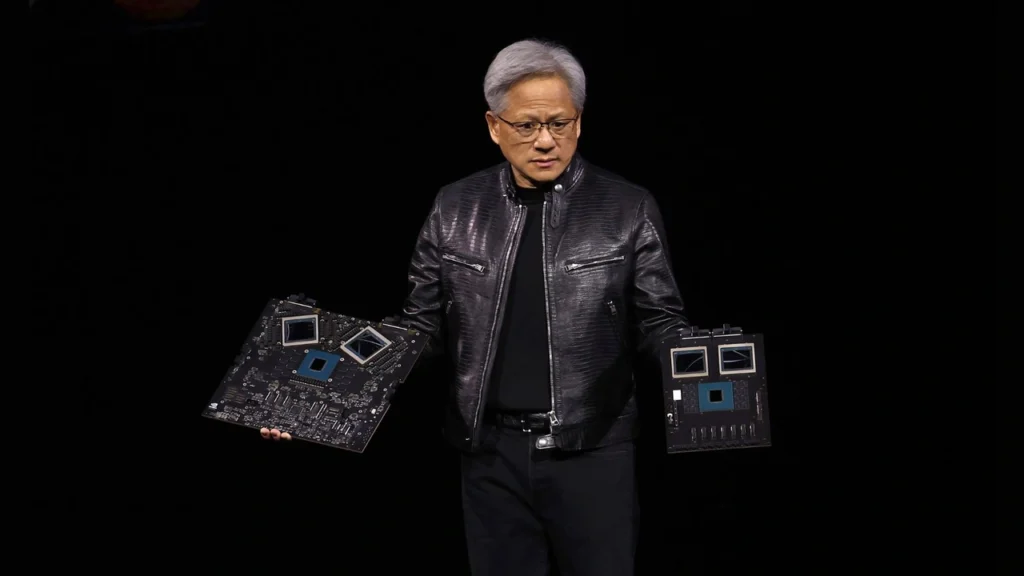Nvidia has once again cemented its dominance in the AI hardware sector with the unveiling of its latest cutting-edge processor, the Blackwell Ultra AI chip. The announcement was made by CEO Jensen Huang during the company’s highly anticipated GTC 2025 event in San Jose, California. The Blackwell Ultra is set to revolutionise AI processing, boasting enhanced computational power, improved energy efficiency, and superior memory bandwidth, addressing the growing demand for advanced AI models.
A New Era of AI Processing
With artificial intelligence rapidly evolving, Nvidia has positioned itself at the forefront of this technological revolution. Jensen Huang described the Blackwell Ultra AI chip as the gateway to the “age of AI reasoning”, where machines will not only process vast amounts of data but will also exhibit more sophisticated decision-making capabilities.
“We are moving beyond data processing into an era where AI can reason, learn, and make decisions with unprecedented efficiency,”
Huang

The Blackwell Ultra chip represents a significant leap forward, designed to power next-generation AI applications across industries, from healthcare and robotics to autonomous vehicles and finance.
What Makes Blackwell Ultra Special?
One of the most significant enhancements of the Blackwell Ultra chip is its ability to support larger AI models while improving energy efficiency and processing speeds. This means AI-powered systems will be able to handle more complex computations faster than ever before.
Key features include:
- Advanced Multi-Chip Architecture for seamless data transfer.
- Enhanced Memory Bandwidth to support AI model scaling.
- Optimised Power Efficiency, reducing the cost of running large-scale AI applications.
- Improved Security Measures to safeguard AI-driven computations.
The Road to Rubin AI
Nvidia also teased its future AI chip development roadmap, confirming that Blackwell Ultra is only the beginning. The company plans to release the Rubin AI chip in late 2026, followed by an even more advanced iteration, Rubin Ultra, scheduled for 2027.
These upcoming chips are expected to push AI hardware innovation even further, ensuring that AI applications can operate at unparalleled speeds while maintaining low power consumption.
AI-Powered Future
With Nvidia’s Blackwell Ultra AI chip, the company continues to push technological boundaries, paving the way for AI-driven breakthroughs across industries. As the competition in AI computing intensifies, Nvidia remains a leader, ensuring its hardware is ready to meet the needs of tomorrow’s AI.
Final Thoughts
With AI becoming increasingly central to innovation, Nvidia’s Blackwell Ultra AI chip is set to power the next generation of AI applications. The company’s roadmap demonstrates its commitment to staying ahead of the curve, ensuring AI capabilities evolve at an unprecedented pace.

